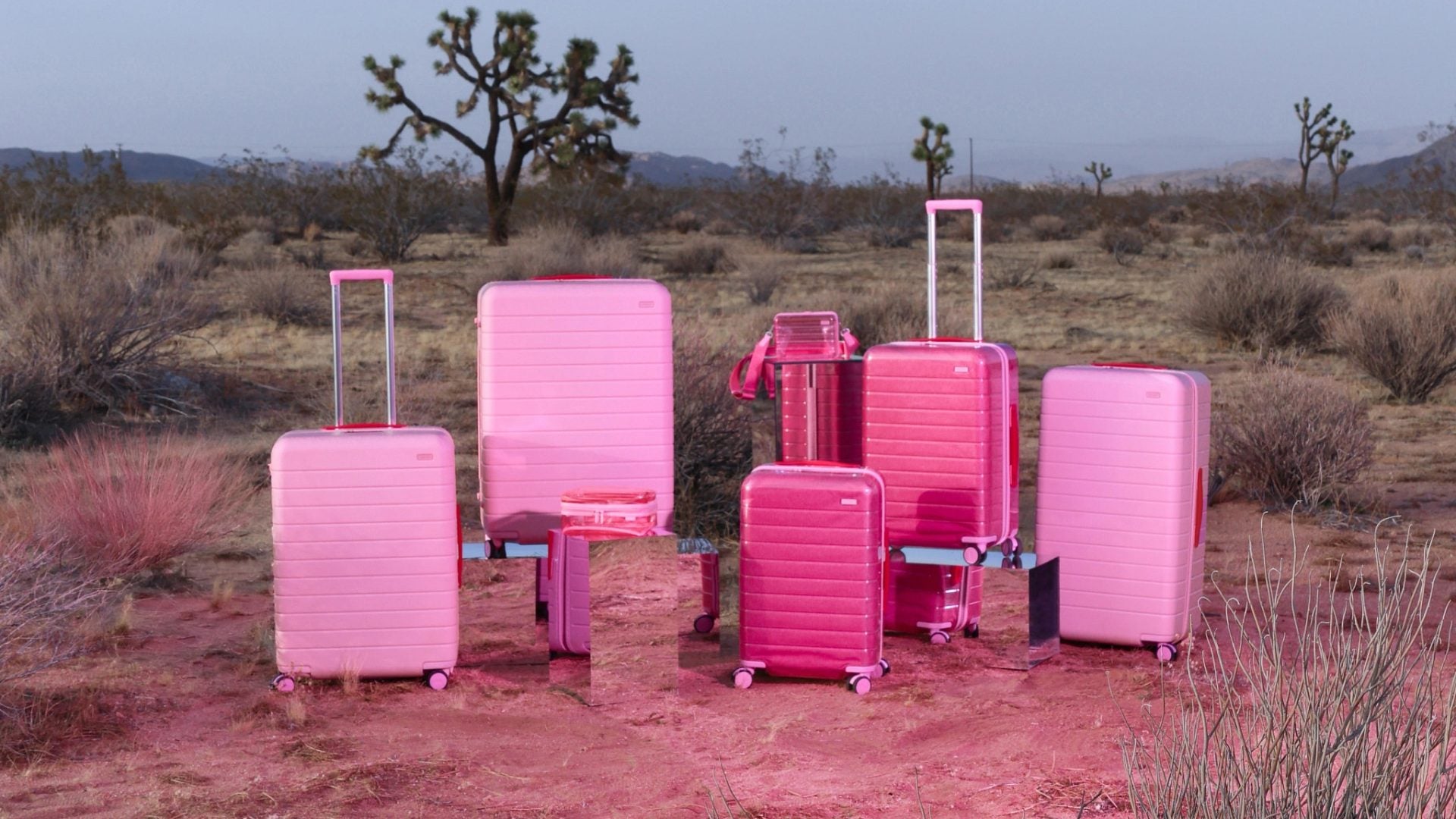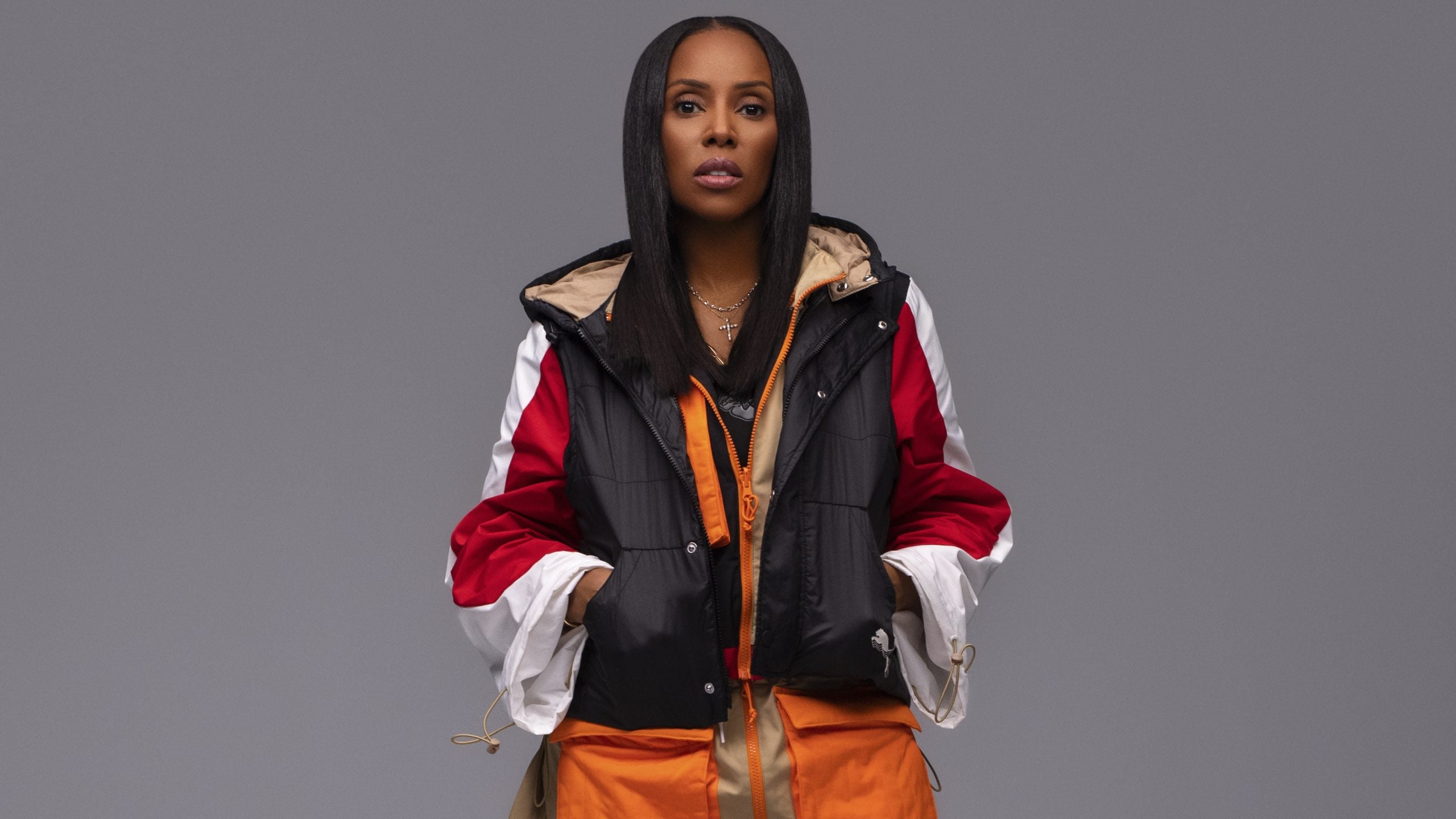
‘Sole Searching’ is a series that highlights Black women in the sneaker community, how their passion for footwear began, their thoughts on Black women in sneaker culture, and how they’re leaving their legacy in the sneaker world.
25 years in the fashion and style game is no small feat. June Ambrose has not only effortlessly styled some of the biggest names in the music industry, but her personal style is always one to be admired. From her custom Gucci gown at the annual Fresh Air Fund gala to sitting front row during Milan Fashion Week with her daughter Summer Hope Chamblin, it’s nearly impossible to miss Ambrose’s standout style no matter what corner of the continent she’s in. One thing about her that you definitely can’t miss will always be her shoe game. High fashion vibes or mile high on a private jet, her kicks never miss.
“It’s a good question. What’s your first relationship?,” Ambrose recited back to me rhetorically when asked about her growing connection to the sneaker world. “It’s evolved tremendously because you abandon your sneakers as you become a woman and you feel like you need to be grown. Then you put on your heels, you realize these since memories that you get from putting on a pair of your favorite classics and how does that make you feel? For me, it’s my young pill. I just feel so adorable and disruptive, easy, cool, and campy when I put on my sneakers.”
Since she was a young girl, she’s always had an appreciation for the style and grace that come with the power of a cool pair of kicks. Fast forward to 2022, Ambrose has made a name for herself as one of the most highly respected fashion architects to have ever touched the world of style and has worked with some of the most notable names in entertainment from Missy Elliott to Jay-Z. Now, she serves as Creative Director of global sportswear brand PUMA, where she also launched her debut “High Court” collection inspired by basketball and WNBA athletes.
“I put Missy Elliot in a pair of PUMAs. My relationship with PUMA, it goes back. It’s rooted from the late ’90s,” Ambrose reminisced with ESSENCE about this full circle position within PUMA’s latest Women’s Hoops category. “If you look at the ‘I Can’t Stand the Rain’ video, Missy’s on the hill in the green custom leather jogging suit that I designed for her in a pair of PUMAs. It was because it was retro and it was nostalgic. You talk about a company celebrating its 75th anniversary come next year [and] 50th year of hip hop. There’s definitely no doubt that there are some classic moments and relationships they’ve had with hip-hop culture along the way. It’s nice to come full circle and just be reminded.”
In this installation of ‘Sole Searching,’ ESSENCE caught up with living icon June Ambrose about her career trajectory to becoming the Creative Director of PUMA, her definition of the motto, “life is a sport,” and the ever-evolving relationship between culture, hip-hop, and sneakers.
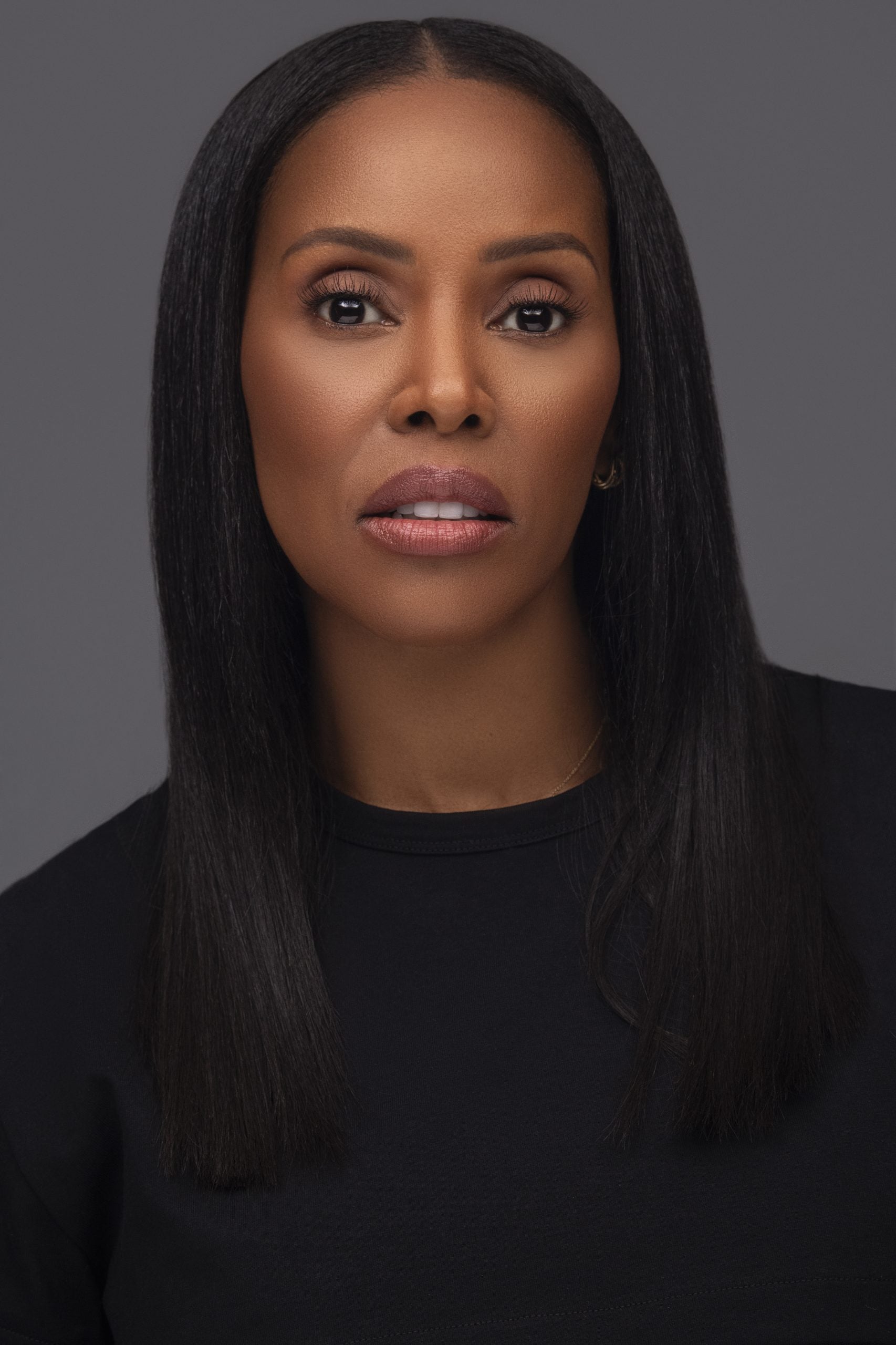
On her first sneaker memory:
“As an adolescent, when you think about our street socks were sneakers growing up. I grew up in the Bronx, in the backyard where hip hop was born, and sneakers used to hang from the wires in the street. They felt like flags. You knew that someone lived, someone walked in those shoes, and that there was a story behind it. It was a passage to be able to have your sneakers thrown over the power source wire in the neighborhood. That’s where I first was like, ‘oh, I want a pair of those kicks.'”
“Just seeing really iconic classic moments hanging like tinsel in the hood was one of my first memories but also being able to interpret something athletic in my own way. I would love to kind of take it out of context. If my mom was taking us to church, I wanted to wear my sneakers with my Sunday dress. If I had to go to school and it was a special program, the sneakers were not only your comfort place, but it’s also your place of expression. I think it’s all about context and I think that my relationship with sneakers has always been about how do I give it because I’m a high heel girl. I’m vertically challenged.”
“When I wear a sneaker, I need to think tall, I need to feel tall, or I need to feel campy and cute. I always tap back into these young memories of my sneaker childhood. In my adult life, whenever I put on my sneakers, I feel so girly. I feel so adorable. People don’t use those words when you’re a grown-up, and when you hear them, it is the best compliment. To me, it’s way nicer to hear than sexy. I always used to wear heels and my sneakers are now like new high heels. It was hard for me. I still have tons of heels in my closet, but I love being able to wear a sneaker with a gown or a suit, working with celebrities over the years, and pop culture and interpreting.”
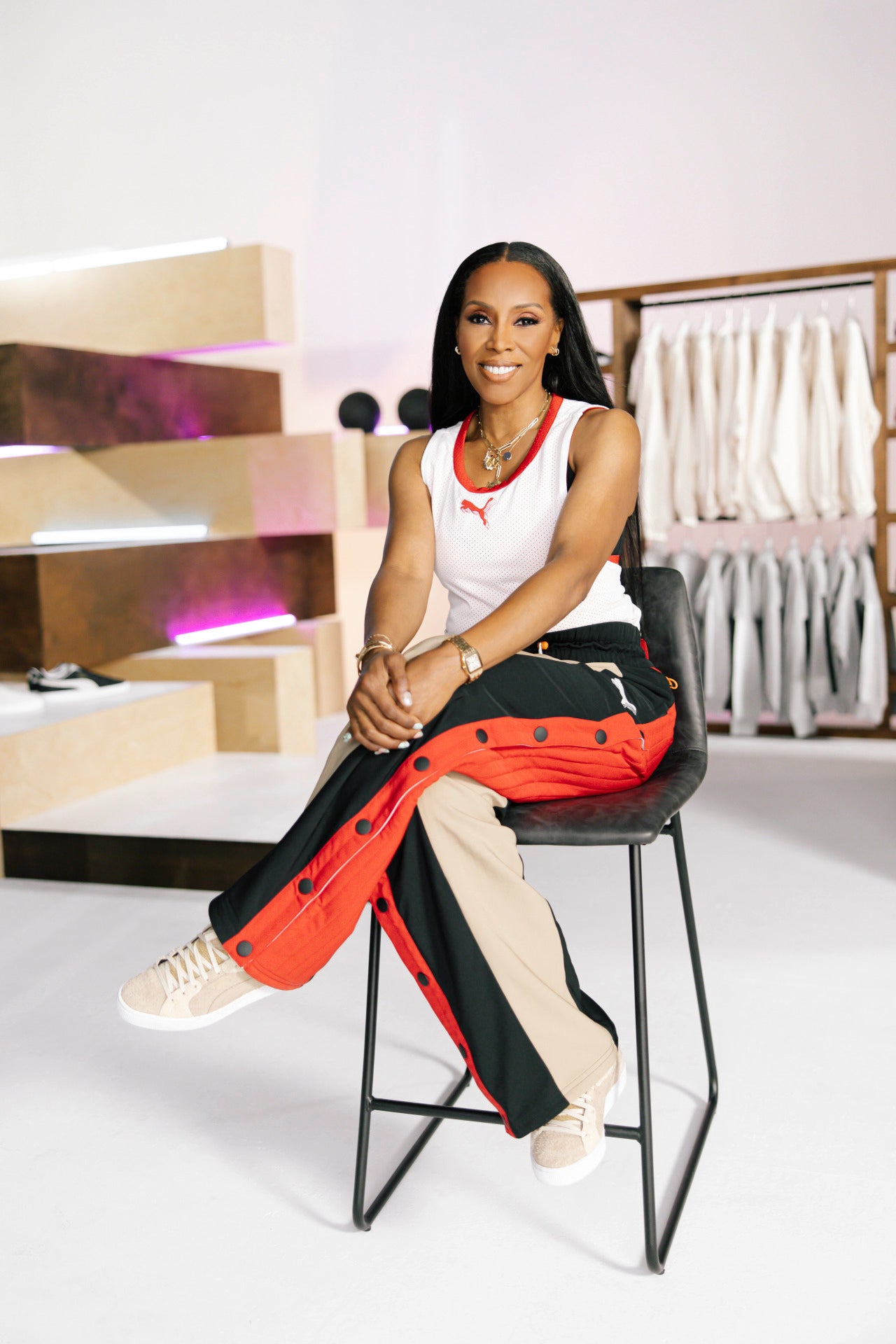
On the full-circle moment of landing a career at PUMA as Creative Director:
“I’m humbled by the opportunity. I think it’s a tremendous time in my career that I get to reinvent myself in this space and I get to really share my superpower and all the things I’ve learned along the journey and how we can continue to make iconic moments happen and continue to remind people where the influence started. We have tons of receipts and there are so many points of reference that, at the end of the day, are all circular.”
It comes full circle. The conversation that we’re having now is rooted in classics. It’s rooted in nostalgia. It’s rooted in all the seeds that we planted early in my almost 30-year career. I can draw a reference back to that and say, ‘Look at it. It’s still relevant now.’ To be able to reinvent yourself and still be relevant is a great place to sit so I’m grateful for the opportunity to be able to redefine how people see PUMA as life is a sport. Style has been my sport for most of my life, and now we’re talking about life itself as a sport and how do we adopt all of these performances and the future of retro into this space and this world?”
On how she will be approaching sneaker culture within her role at PUMA:
“I want people to take ownership of the fact that you don’t need creative license. You don’t need permission to take something that is performance, that is a classic, and make it your own and bring attitude and energy to it. Your voice is your style, is the way you articulate and express yourself, and how it’s mute. Any shoe can’t move without a foot. When you think about what you bring to that classic [and] how you’re going to interpret [it], it’s really where the trends and energy start to gravitate towards. The way you see things matters. The way I think to be able to speak in this space, in a fashion, with a fashion sensibility. When you think about when [Jay-Z] first started wearing PUMA, the retro T7 tracksuit, and you saw those classic Ralph Sampsons, the classic Suedes, and it really was somewhat effortless. He’s just an iconic classic icon.”
“But then you think about that young person who may have felt like it was too classic, but then as fashion explodes every day and it becomes even more hyper reactive. I think it’s nice when you can ground something in a really classic, simple shoe. You don’t want to balance your bold and you want something that’s really just enough of a vibe, but doesn’t upstage your whole look. That to me is a really great classic shoe moment when it just doesn’t get old because it doesn’t feel forced. It just has to be. That’s a timeless swag. I encourage consumers to balance their bold, take things out of context, own it, bring things back, throw it back, and throw it forward. Reinterpret it in a different way, regurgitate it, because we’re all just regurgitating stuff that we’ve consumed over the years in our own way. We’re not inventing anything, in a sense. We’re just interpreting it in a very unique and creative way, and I think that’s the fun and the magic in it all.”
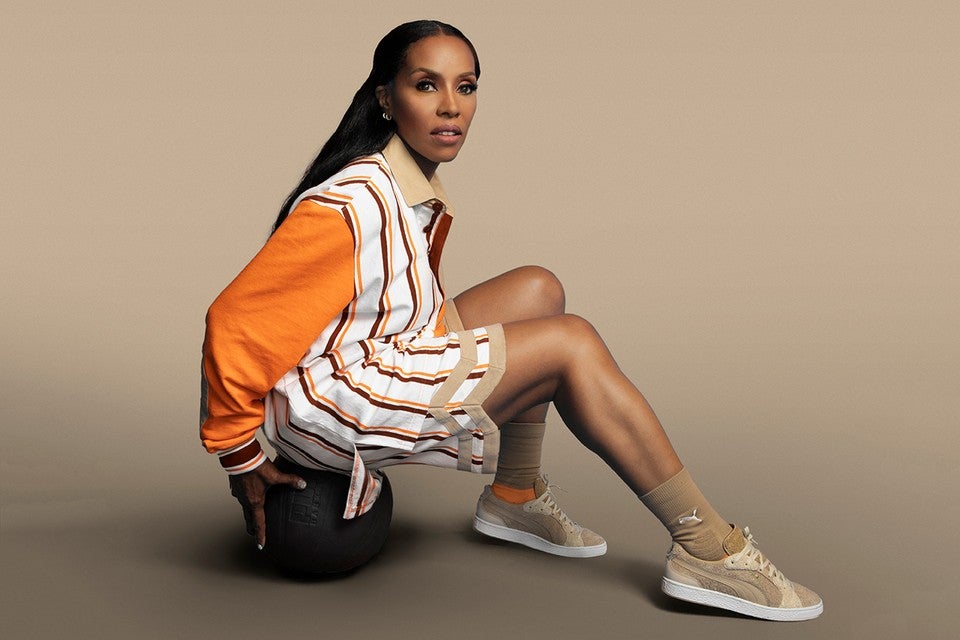
On how classic sneakers have played a role in Black culture and hip-hop history:
“God, you think about the fact that [hip-hop is] one of the number one genres in the world. I mean, you couldn’t say that 25 years ago. Wow, it’s such an aha moment. We always knew that it was a very compelling art form, that it was poetry at its finest, and that it had such intense rhythm, both vocally, lyrically, and from the production side. The way that it has shaped the fabric of every genre in fashion is tremendous. When you think about how hip-hop has taken street culture and created something that is so globally appetizing, from high fashion to street fashion, that is rooted in not just street culture, but also hip-hop culture influence, which I call hip-pop culture.”
“With people of color, it’s popular to be [and] to see things the way we see things. I think that’s something to celebrate. Because they’re so expressive, we were never invited into certain rooms, and we didn’t ask for permission, we just took creative license to express and do things in our way. Sometimes that forgotten child ends up leading the way and ends up being the one who rules the world. I’m sure everyone can say that they felt like the forgotten child once in their lives and they end up living to rule another day. It’s encouraging because if you look at a genre of music that was somewhat secular, like rock and roll, when they first heard it, they were like, ‘it’s devil music,’ and hip hop, ‘it’s gangster music.’ Now, most gangster lyrics are so widely accepted. It’s the norm. It goes to tell you that influence in multitudes is the way you shift and move things forward.”
On reimagining the classic PUMA Slip Stream:
“I mean, the ’80s was a good time. They were born in 1987 and it’s such a great year. I was in junior high school [and] that was the urban sock. I always call it the urban sock. It’s another great classic nostalgic basketball sneaker that we are now reimagining today as if it never left. It’s all about those retro classic pieces that are really making a lot of noise, so much so that in my 2023 collection, I had already identified it as a sneaker that I wanted to return to the marketplace for keeping score. When we drop in January and in March, the Slipstream will be the foundation of a lot of the looks that you will see come out of those collections, of that Coco Lab x June Ambrose x PUMA drop.”
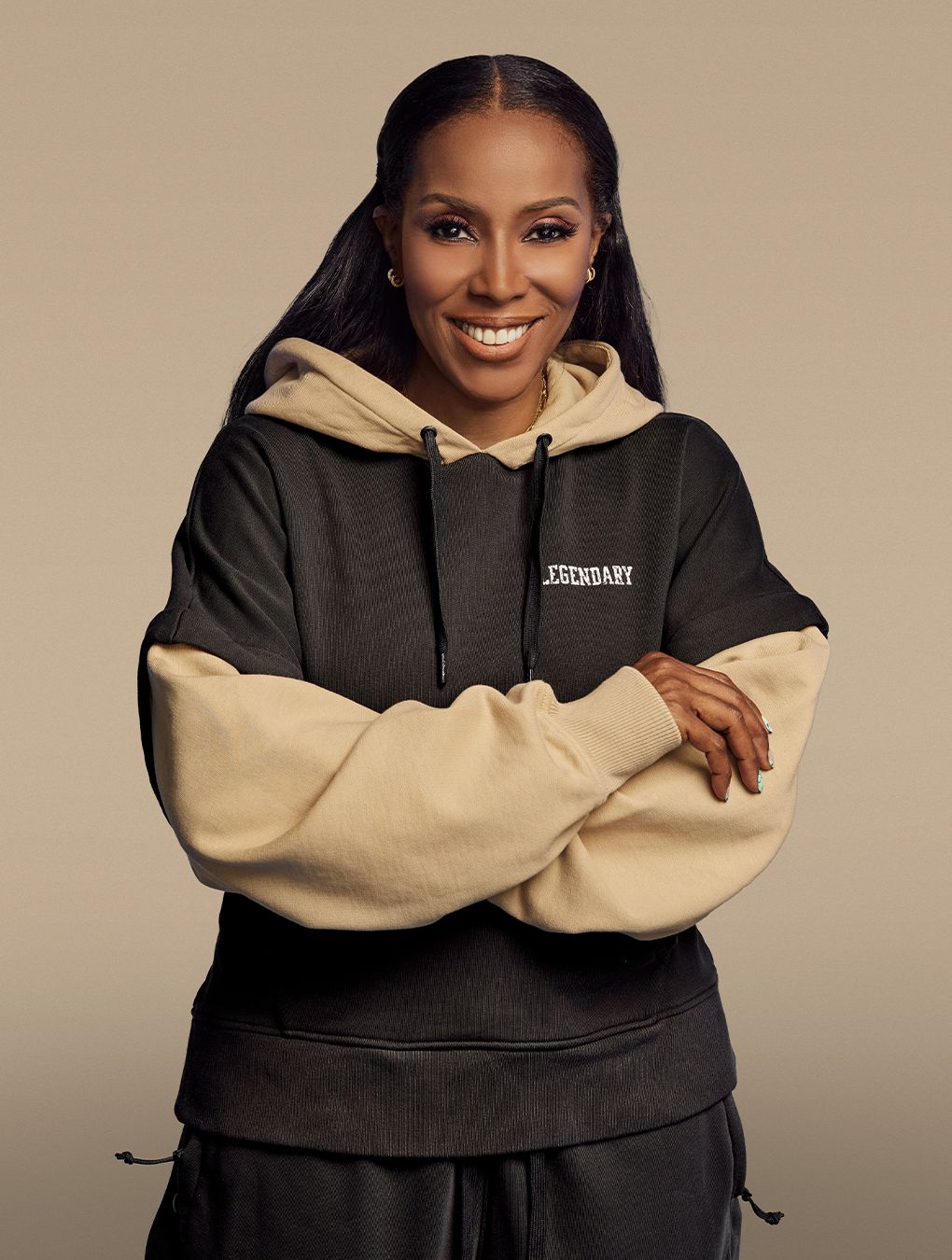
On some of her favorite sneaker style moments of her career:
“As of recently, I did the Met Ball with my daughter for the first time, so [the] Met after-party. We both had on PUMA sneakers with our fabulous Gucci gowns and Bibhu Mohapatra couture dresses, and we walk into the boom boom room in our PUMA kicks, which was so great. It was memorable because I get to walk in with my 16-year-old who wants to hang out at the time, which makes me feel so relevant as it is. I think seeing PUMA classics play out On The Run Tour for two seasons with Jay’s 12 changes and it being the foundation to all of his looks – classic, but impactful moments rooted in performance and style. That was a great fashion moment. The missing moment I talked about, going full circle and seeing that sneaker, not knowing that I would be here today, but seeing that sneaker on top of the hill in a high fashion athletic, custom leather tracksuit was a moment.”
On how her daughter Summer Hope challenges her creativity:
“When you can have a cross-generational conversation, there’s something that’s like when you’re sharing clothes or you’re tapping into something that had become taboo. It was the fact that there’s a commonality between someone that’s twice your age that you can relate to each other in particular styles is clever. I love the whole tomboy thing. Obviously, I can’t wear the crop tops like she does, but I get really flattered when she wants to wear something that I own. I try to stay in a space that speaks to both our personalities in a sense, too. We don’t feel the need to be overtly sexy in fitted things to feel beautiful, sexy, and provocative. That’s a great way to communicate how one feels, how I influence her, and how she influences me.”
“It’s not taboo to be in your mom’s clothes, or for me to be wearing anything she’s wearing. I love her style expression because she doesn’t try so hard. She doesn’t feel the need to chase a label. It’s so much more about what she has to say, opposed to how she looks. At first, I was like, ‘oh my God, she’s not a fashion girl.’ Then, I appreciated the fact that she wasn’t caught up in the name, but more so caught up in how she interprets it.”
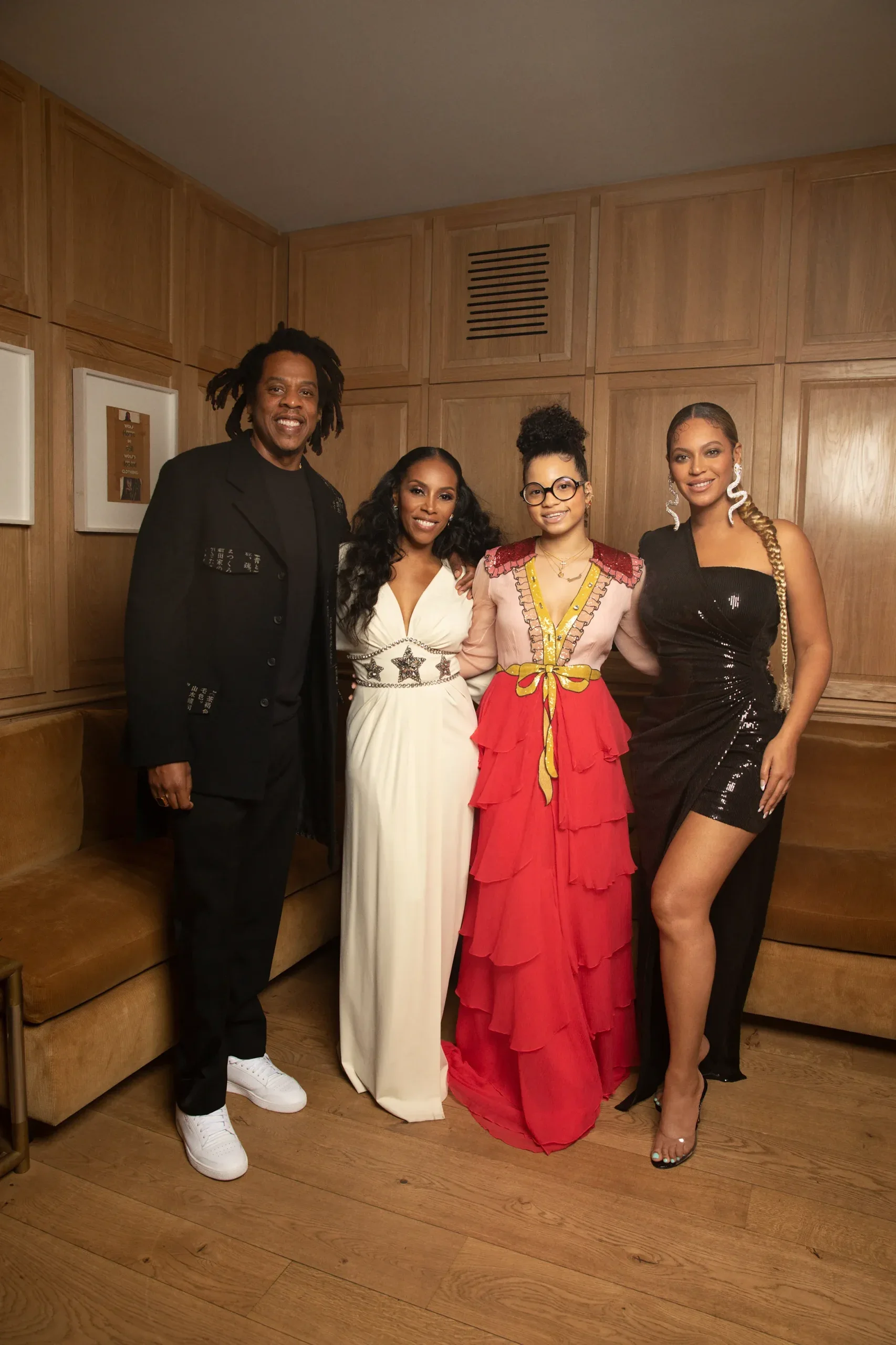
On the legacy she wants to leave in the sneaker community:
“Life is a sport and play it to win. Whether you’re on the track or you’re playing a game, any game you play, when you think about what you have to put into it, in order for it to have a winning result, it’s athletic. It takes physical, emotional, and mental tenacity – the same as any athlete would have to put into being at the top of their game. From the time we land our feet from the bed onto the ground, we know that we have to warm up. We have to stretch. We have to prepare. We have to garb ourselves to go out to battle or to play the game. When you think about this phase, what it takes to prepare for any sport, it’s the same setup that life is putting in front of us. The warmup, the game time, how you recover after, whether you won this particular one and how you resiliently bounce back. Just because you lose one game, doesn’t mean that you won’t return to fight it to play another.”




